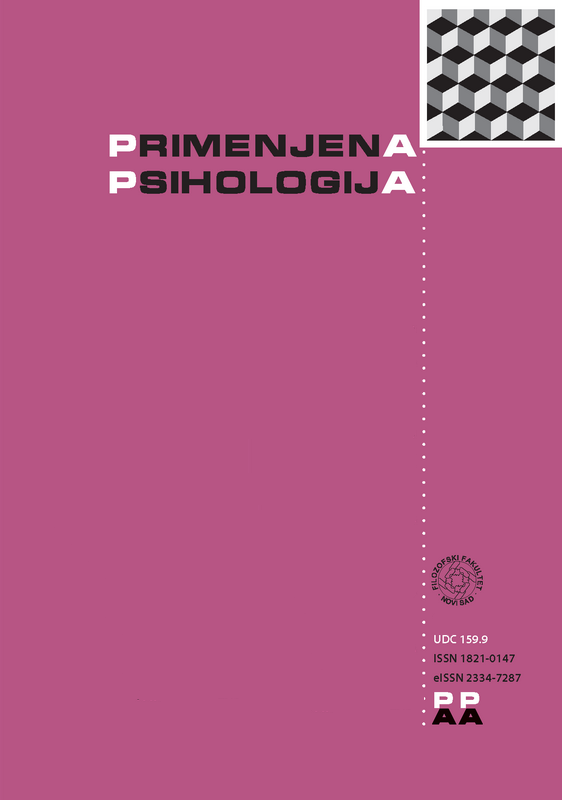The roles of social dominance orientation, collective trauma effects, and regulatory focus in prediction of national identity
DOI:
https://doi.org/10.19090/pp.2015.1.67-82Keywords:
national identity, regulatory focus, social dominance orientationAbstract
The present study aimed at exploring the relationship between social dominance orientation, collective trauma effects, regulatory focus, and national identity. The sample was comprised of 201 participants selfidentified as Serbs. Participants completed the following questionnaires: the In-group identification scale (Solidarity and Centrality subscales), the Perpetual In-group Victimhood Orientation – PIVO, the Fear of Victimization – FOV, the Social Dominance Orientation Scale – SDO, the Regulatory Focus Questionnaire (Promotion and Prevention subscales) and the Group Regulatory Focus Questionnaire (Promotion and Prevention subscales). Multiple Regression Analysis showed that perpetual in-group orientation, fear of victimization, perception of national group as oriented toward promotion and social dominance orientation explained 24.7% of the variance in national group identification. The findings indicate importance of perceptions of historical context and need for positive distinctiveness of own ingroup for identification with national group.Downloads
Published
23.03.2015
How to Cite
Jovanović, O., & Petrović, N. (2015). The roles of social dominance orientation, collective trauma effects, and regulatory focus in prediction of national identity. Primenjena Psihologija, 8(1), 67–82. https://doi.org/10.19090/pp.2015.1.67-82
Issue
Section
Regular issues







